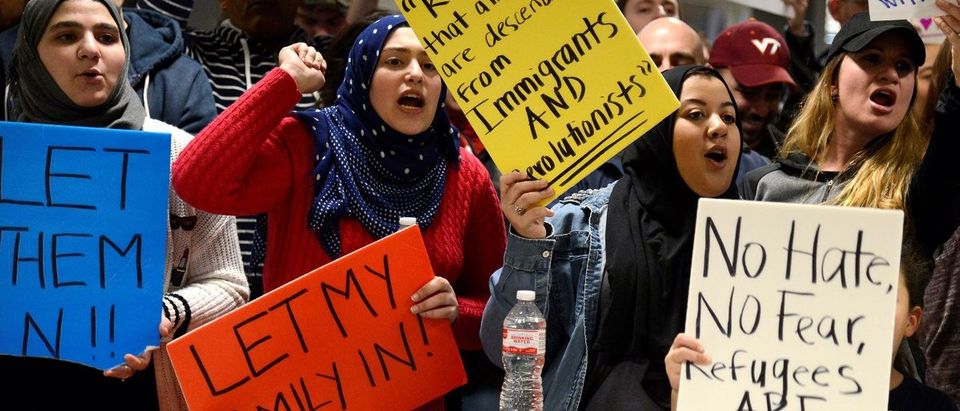President Trump’s plans to sign an executive order halting admissions of refugees from high terrorism threat countries offers the first hope in decades of correcting an ill-conceived policy that has long endangered American national security and ineffectively served humanitarian needs.
But while the Trump Administration’s plans will be an improvement, it is not clear that its proposals will be appropriate to effectively address the challenge. Most troubling are the suggestions that refugee flows from high terror threat regions will be curtailed only temporarily until “extreme” vetting procedures are established, and plans to use American military power to establish safe zones in Syria.
Vetting cannot be accomplished reliably in most conflict zones and terminating high-risk refugee flows should not be made contingent on politically convenient fantasies about the possibility of better vetting. Top intelligence and law enforcement officials including the directors of the FBI, National Counterterrorism Center, and Immigration Fraud Detection and National Security Directorate have warned that Syrian refugees cannot be effectively vetted for terrorism risk. They warn it doesn’t matter how extensive the vetting process is when there are no reliable records databases to search.
Furthermore, a large body of compelling evidence from ISIS and U.S. intelligence sources leaves no doubt about the danger the refugee terrorist threat presents to America. ISIS and its associates frequently refer to their intention to strategically exploit refugee flows for terrorist infiltration in works such as Black Flags from Rome, Black Flags from the Islamic State, Libya: The Strategic Gateway for the Islamic State, and How to Survive in the West: A Mujahid’s Guide.
It is a reckless endangerment of the safety of Americans for the President, Congress, and Department of State to bring refugees to America from countries where ISIS and other extremist groups are active when it is known that these violent jihadists are embedding terrorist operatives into refugee flows to infiltrate countries they intend to attack.
Washington should immediately and permanently cease admitting refugees from countries where violent extremist groups hostile to American interests are actively operating, recruiting, and planning attacks. The Trump Administration should develop an objective analytical process and rational criteria based solely on terrorism risk for placing countries on the high-threat exclusion list as soon as possible.
In the interim, the U.S. Refugee Admission Program should exclude all individuals originating from any of the high terrorism risk countries specified in the “List of Specially Designated Countries (SDCs) that Promote or Protect Terrorism” published by DHS in the original May 2011 version of Supervision of Aliens Commensurate With Risk, the State Department’s list of high threat, high risk diplomatic posts, and the “High-Risk Country” list included in Senator Rand Paul’s SECURE Act (H.R. 3762).
Moreover, the United States should not expand its military involvement in Syria to establish refugee safe zones there, a policy that would increase the risks of prolonged entanglement and conflict with Russia without sufficient reward and where no vital interest is at stake.
The appropriate U.S. response to the refugee crises in Syria and elsewhere is to provide humanitarian assistance to displaced persons at refugee sites administered by the United Nations High Commissioner for Refugees in neighboring countries, a solution that allows us to help twelve times as many people for the same investment while also preserving the cherished hope of the substantial majority of displaced persons that eventually they will be able to return home.
Whether viewed through the lens of national security or humanitarianism, accepting refugees from terror-prone regions is ill-advised. The U.S. can most effectively protect its citizens and reasonably address humanitarian concerns by refraining from settling refugees from these nations in America, assisting them at UN safe sites overseas, and avoiding unnecessary military entanglements.
Dr. William J. Murphy is an Associate Professor of Social Science at the New England Institute of Technology where he teaches courses on Terrorism and National Security, American Government, and Economics. He is also a Policy Advisor with the Center for Constitutional Reform at the Heartland Institute. He can be reached at wjmurphy2@gmail.com.


